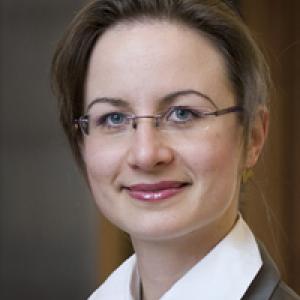Professor Freya Baetens nominated to UNHRC Working Group on Mercenaries
Associated people
At its 56th session (18 June to 12 July 2024), the United Nations Human Rights Council (UNHRC) will appoint, among other, a new member of the Working Group on the use of mercenaries as a means of violating human rights and impeding the exercise of the right of peoples to self-determination (Human Rights Council resolution 51/13), from the Group of Western European and Other States (WEOG Group).
The Working Group is mandated to monitor mercenaries and mercenary-related activities in all their forms and manifestations; study and identify sources and causes, emerging issues, manifestations and trends with regard to mercenaries and mercenary-related activities and private military and security companies and their impact on human rights; continue the work on the strengthening of the international legal framework for the prevention and sanction of the recruitment, use, financing and training of mercenaries; and actively participate in other subsidiary bodies of the Human Rights Council.
Freya Baetens, Professor of Public International Law at the Law Faculty, said: “I am highly motivated to become a member of this Working Group because I strongly believe that international human rights law can only achieve its goals if it looks beyond States, at the activities of non-State actors, at the international as well as the regional and domestic level. My vision for the mandate is to scrutinise mercenarism as a contextual (not a stand-alone) exercise: its root causes intersect with more structural problems such as inequality, poverty and discrimination. Effectively addressing the human rights abuses caused by mercenarism is therefore a crucial part of national and international sustainable development and peacebuilding.”
Professor Sandra Fredman warmly supports this application, saying “Professor Baetens has been an innovative and committed research director of the Oxford Human Rights Hub, combining her academic expertise and professional experience with her deep commitment to the dissemination and application of human rights globally.”
Judge Ledi Bianku (former Judge and Vice-President of the European Court of Human Rights; current Judge of the Constitutional Court of Bosnia and Herzegovina) stated that he “strongly believe[s] that Professor Baetens, with her expertise and dedication, would be a tremendous asset to any UN body” among other because of her “first hand involvement in some of the most critical debates [that have] taken place in relation to human rights protection in Europe and beyond”, including as “an expert on a Council of Europe project on the enforcement of the European Court of Human Rights’ judgments”.
Professor Mads Andenaes (Chair, Faculty of Law, University of Oslo; former Member and Chair-Rapporteur of the UN Working Group on Arbitrary Detention) confirms that Prof. Baetens “has exhibited leadership in spearheading significant research projects on themes including migration law and policy, actors in international adjudication, shared responsibility of States and IOs, and climate action”. In addition, she “has advised governments, international organisations, judicial bodies, and private companies [including] all three major regional human rights courts”.

